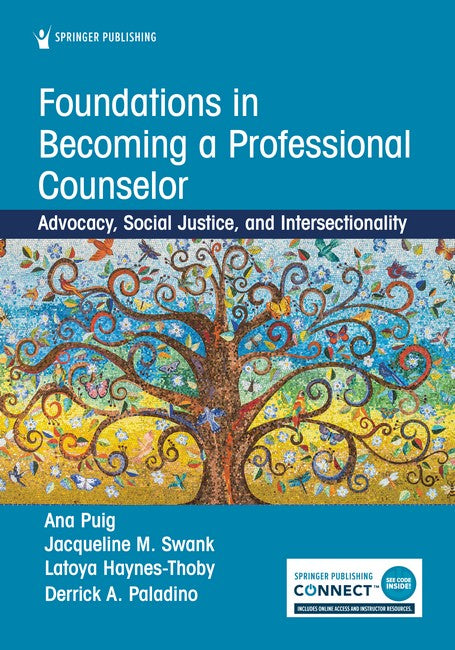Ana Puig, PhD, LMHC-S, NCC, is scholar and research director in the Office of Educational Research, College of Education at the University of Florida (UF) and Affiliate Faculty in the School of Human Development and Organizational Studies in Education, Counselor Education unit. Dr. Puig is a licensed mental health counselor and qualified supervisor in the state of Florida and a National Certified Counselor. She also holds a Spirituality and Health certificate from the Center for Spirituality and Health at UF. Her areas of specialization are multicultural spirituality and religion in counseling; complementary therapies and mental health; creativity in counseling and supervision; and group work. She has engaged in international research and education for over 16 years, predominantly focused on the Asia-Pacific region and in her native island of Puerto Rico. More recently, Dr. Puig has conducted research on impacts of hurricanes Maria and Irma on stakeholders in the K-20 school system in Puerto Rico. She has also led research on Streetlight at UF Health, a palliative care program providing psychosocial support to adolescents and young adults with chronic and terminal conditions. Dr. Puig is the author of over 40 articles, 8 chapters, and 65 invited or refereed presentations at the local, regional, national, and international levels. This is her second book. Dr. Puig is a fellow of the American Counseling Association. Jacqueline M. Swank, PhD, LMHC, LCSW, RPT-S, is an associate teaching professor in mental health practices at the University of Missouri. She was formerly an associate professor of counselor education at the University of Florida. She has extensive experience working with children and adolescents and their families in various counseling settings, including outpatient, schools, day treatment, inpatient, and residential treatment facilities, and has worked clinically in both the United States and England. Her research interests focus on holistic growth and development of children and adolescents, counselor competency, assessment, nature and play-based interventions, and international counseling. Latoya Haynes-Thoby, PhD, LPC, NCC, CCTP, is an Assistant Professor of Counselor Education at the University of Connecticut. Her work explores the benefits of trauma prevention and trauma-responsive counseling that is culturally relevant and promotes resilience. As such, her research focuses on individual and community healing from trauma. Dr. Haynes-Thoby aims to broaden what we understand about human resilience, thriving, and wellbeing, especially related to the experiences of marginalized communities. Derrick A. Paladino, PhD, LMHC, NCC, is a professor and department chair in the Department of Graduate Studies in Counseling at Rollins College in Winter Park, Florida. He also serves as a part-time counselor at Rollins College Counseling and Psychological Services. His clinical and scholarship interests fall within the areas of multiracial identity, college counseling and student development, and crisis assessment and intervention. He is the coauthor of the books Counseling Multiple Heritage Individuals, Couples and Families and College Counseling and Student Development: Theory, Practice, and Campus Collaboration both published by the American Counseling Association.
Request Academic Copy
Please copy the ISBN for submitting review copy form
Description
List of Podcast Contributors Foreword Preface Acknowledgments Chapter 1. The Counseling Profession, Advocacy, Social Justice, and Intersectionality Chapter 2. Multiculturalism, Intersectionality, and Diversity in Counseling Chapter 3. Professional Counselor Identity Chapter 4. Ethical and Legal Standards in Counseling Chapter 5. Counseling Skills, Process, and Modalities Chapter 6. Orientations to Counseling and Theoretical Frameworks Chapter 7. An Introduction to Counseling Settings Chapter 8. Research, Assessment, and Diagnosis in Counseling Chapter 9. Substance-Related Disorders, Behavioral Addictions, and Counseling Chapter 10. Crisis Counseling Chapter 11. Trauma Counseling Chapter 12. Creativity in Counseling Chapter 13. Complementary and Alternative Approaches in Counseling Chapter 14. Current Trends in Counseling and the Future of Counseling Index

